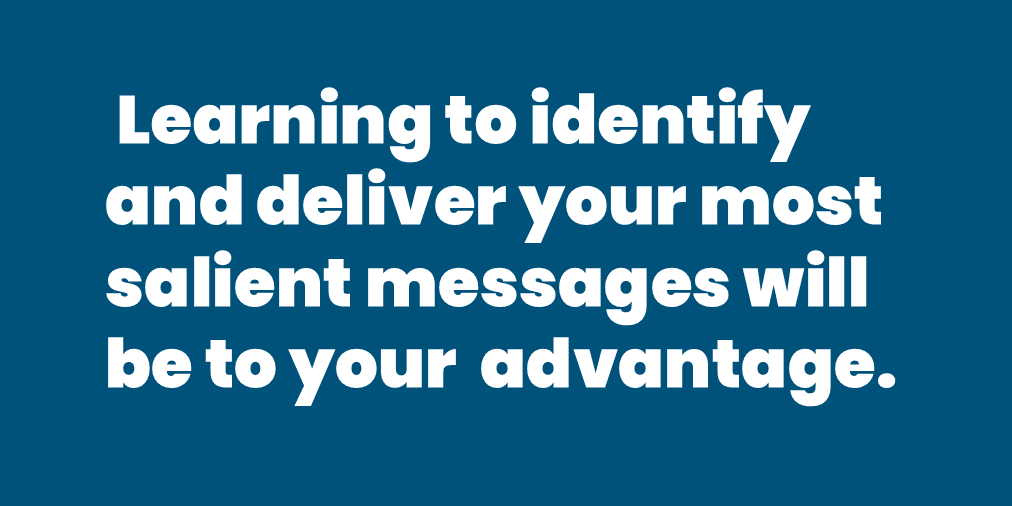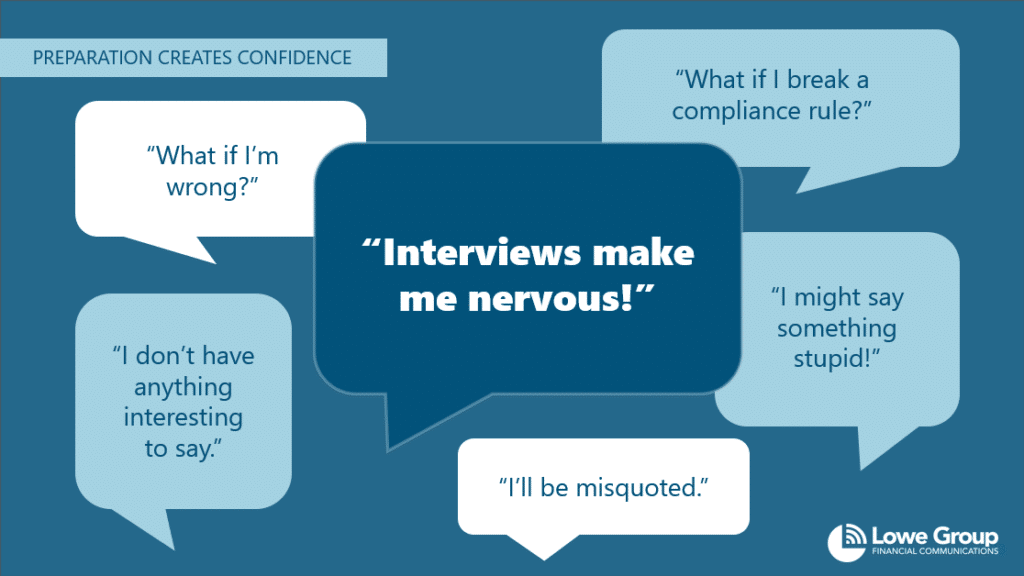
Lessons from the trenches: what to expect when you are asked to attend media training
As part of our engagements with clients and as a separate standalone service, we’ve trained hundreds of spokespeople to talk to the media or speak on webinars and panels.
Our media training can be anything from an abbreviated online training to a full-day program with on-camera practice. The goal is to get spokespeople comfortable talking to the media. Many are nervous. We talk about what the media need to do their job and what they are like as professionals.
We often need to remind people that reporters are not your stenographers; they have a story to write and are looking for smart, interesting sources. But we also try to change how spokespeople prepare for interviews. We take participants through a custom message development process and give them an opportunity to try out those messages with real interview practice.

One of the advantages of training with a PR firm embedded in the investment industry—and the reason to work with Lowe Group in particular—is that we can understand the compliance guardrails that constrain what you can say—and what will keep Marketing from being able to leverage the outcome of your interview via a link on your website or a reprint. There is nothing more frustrating than watching a spokesperson go rogue and violate a firm’s prohibition on discussing individual securities or touting performance.
If you are invited to participate in media training, here’s what you can expect:
- You will learn how to be concise. So many subject matter experts want to share everything they know, traveling down rabbit holes that are far too detailed. Broadcast interviews in particular are very different from normal conversation: you will learn to conclude first, then explain. In a fast-moving interview you always risk being interrupted.
- You will plan your message in advance with a goal of delivering your key points at least once and, if possible, repeating and summarizing them when you conclude.
- You will learn that you don’t have to answer every question, especially if you aren’t an expert. You’ll practice ways to say, “I’m not an expert in that area, but I can talk about this related topic…”
You’ll learn how to work your firm name or product into the conversation, but sparingly and never more than once. Just by being interviewed with your name and company affiliation mentioned, you are demonstrating credibility and will be viewed as an expert. - When thrown a complex question, you’ll learn how to pick and choose how you answer it. “Your question is nuanced and we don’t have time to address it all, but let me address this piece of your question.”
- You’ll learn about remote interviews and learn strategies to keep your eyes anchored on your computer’s camera. Place a photo or arrow there to make sure you do. Bonus points for putting some company swag with your logo in the background.
- You may be told not to be condescending. For example, while it has become popular for pundits to preface comments with words like “look” or “listen,” we think this makes a spokesperson appear combative or worse patronizing. We’ll suggest alternative ways of emphasizing your key points.
- You may be asked to participate in a recorded practice interview that will get played back and dissected. This can be a bit uncomfortable, but rest assured that it will be destroyed and won’t become part of some blooper reel. Hopefully you’ll also get a second bite at the apple and another chance to put your learnings into practice and learn from your mistakes.
Many of the skills gained in media training are applicable in other professional settings such as speaking on panels, meeting with clients or consultants or addressing internal sales meetings. Learning to identify your most salient messages and delivering them in an interesting and engaging way is a communication advantage.
While the process can feel uncomfortable, participants who embrace media training with a spirit of learning—and even fun—walk away with meaningful skills. It is an opportunity to up your communication game, gain new skills and feel prepared when the opportunity to be interviewed arises.
Lowe Group offers a range of media relations services. To learn more, send us a note and we’ll follow up with you.
Subscribe.
Receive the latest news and insights from Lowe Group.